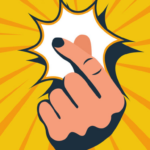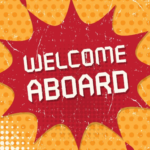Getting enough rest is critical to staying energetic, focused, and successful in your work.
After all, even God is reported to have taken a day off after six straight days of hard work creating the universe!
When you have a demanding job, getting the rest you need might sometimes seem impossible.
Also, you may think you can go without much rest – especially if you’re still filled with the energy of youth.
But that’s an illusion. One that will eventually hit you very hard and torpedo your effectiveness.
You need rest!
Here are some ways to get that restorative rest:
Take a day off every week
Most faith traditions suggest (or even require) that we do this. Even if you don’t practice any religion, this is a very smart thing to do for your own sake.
I know this, because I used to work every day. Every. Day. I’d go to the office on both days of the weekend – I loved being there when nobody was around and there were no meetings.
Then I decided to take a day off. Really off, no work at all. My decision was motivated by my faith. I believed it was something I needed to do for my spiritual health. I quickly learned there were other reasons.
Maybe two weeks after my decision, there was a massive earthquake somewhere in the world. Late in the day on a Saturday.
I had clients in the international relief space. For them, a natural disaster means all hands on deck. A lot of work that needs to get done immediately. As a copywriter, my part in the drill was to write all the required messages so we could start connecting with donors immediately.
But I had decided not to work on Sundays. So I quickly dashed out a super-rough draft of what I knew was coming, then put everything away until Monday morning. It was scary.
Monday, I went to work early. I started in on the massive (but expected) in-box of disaster-related projects. What happened next was amazing: I got 8-10 hours worth of work done in less than two hours. I was shocked when I finished and realized it was still morning – not late evening as I expected it to be. I was not behind schedule as I feared I’d be. I was ahead of schedule.
It felt like a miracle. Maybe it was. But I think a scientific explanation is that because I took a day off, I was far more productive than I would have been if I’d started work on Sunday.
Having a day off each week works for me. It works for millions of other people. It can work for you.
Take some time during the day
This is not possible for everyone. But many great scientists, artists, and others have daily routines where they work hard for a couple of hours, then take a long break, then work a couple more hours.
Many swear by this: that little mid-day break gives you plenty of time to work, and can energize you with new ideas and creativity. If you live and work in a place that widely practices siesta, you may embrace the power of this approach to work.
If you work at a place that makes a real siesta impossible, your workaround might be to take as long a lunch break as you can get away with. Get out of the office, and (if possible) rest or sleep in the time you have.
Take vacations
Too many of us are “too busy” to take a vacation. That’s unfortunate because it’s well-established that taking vacations boosts your happiness, your health, and your performance.
Take your vacations!
One of the reasons many of us don’t do a good job at this is the standard two (or four) weeks off disrupts our required duties so much that it’s almost impossible to find ways to keep the work moving along while we’re away. That’s why you might consider shorter and more frequent vacations.
These smaller vacations can be just as valuable as one big annual vacation. In some ways they can be better: Not only do you get less of the pre- and post-vacation pain, but they give you that joyful anticipation two or more times a year instead of just once. And shorter vacations have similar restorative properties to longer ones.
Like you’ve probably heard before, the only bad vacation is the one you don’t take!
Make boundaries between work and personal time – and keep them
Sadly, being “on the job” 24/7 is an expectation at many workplaces these days.
To the extent you are able, fight this. It’s unhealthy! Everybody will be better off if we can jettison this destructive approach. Doing this should mean:
- You have an established start and stop time each day. Outside those hours, you don’t check email. Don’t send texts to coworkers. If someone texts you (on work issues) don’t respond until work hours. Don’t read your emails on your phone while in bed!
- Don’t work outside of work times.
- If you work at home, even some of the time, have a dedicated space where you work.
- Let coworkers know that you are working to set and keep these boundaries. (Yes, this might be the hardest thing of all. Do what you can!)
I should make it clear that these boundaries are important, but they shouldn’t be inflexible. Emergencies and unusual situations happen in most jobs. You should be willing to put in long hours when necessary. You might even have to pull an all-nighter now and then. But working that way should not be business as usual. And you should have some level of agreement on what kind of special circumstance it takes to trigger working that way.
Have a hobby
Resting should not be just doing nothing. Some of it should, but not all.
You’ll get a lot more out of your “down” time if you spend some of it doing something you’re passionate about. This may be very hard work. But it’s not “work” work, and that’s the important point of it.
Some people spend their off time doing something big, like training for and then running a marathon. That’s a lot of work. Hard work. But ask anyone who’s done it: They’ll tell you it paid off big time.
So whether your “hobby” is needlepoint, singing, rebuilding classic cars, or mountain climbing, throw yourself into it. You’ll supercharge your time away from work.
Get field-tested for the best productivity and self-care tips in the whole fundraising world. Join The Fundraisingology Lab by Moceanic. You’ll get the tools, the information, and the supporting community that will take you to new places in your fundraising career. Join the waiting list now and you’ll be the first to hear when the doors open again!
Related Blog Posts:










